Catch Summer Largemouth Bass by Skipping Docks
Without the necessity of expensive graphs and big boats, some tease that skipping docks is a poor man’s way of fishing, but it is more accurate to say it is a big bass way of fishing.
Fishing for big largemouth bass during the heat of summer can be perplexing even for the veteran angler. Sometimes, though, it is best just to stay close to shore.
Largemouth bass are a lot like grizzly bears: they are bullies and take what they want. They do not have eyelids, and without them, the summer sun can take a toll on them as well. Therefore, shady areas are like the Hilton for big bucketmouths, and they do not like sharing.
Lures for Skipping Docks
A host of lures are effective under docks: soft stickbaits, tubes, and swimbaits all work, but it is hard to argue the rich, historical effectiveness of the jig.
Docks offer a bass everything it needs: food, shade, and protection. When it comes to fishing, anglers can use a bass’ predatory instinct to their advantage. This structure offers the perfect ambush spot, and largemouth are ambush predators. Unsuspecting prey wandering under docks are often never seen again. A jig suddenly skipped under the dock triggers a bass’ predatory instinct to attack. It resembles both crayfish and bluegill.
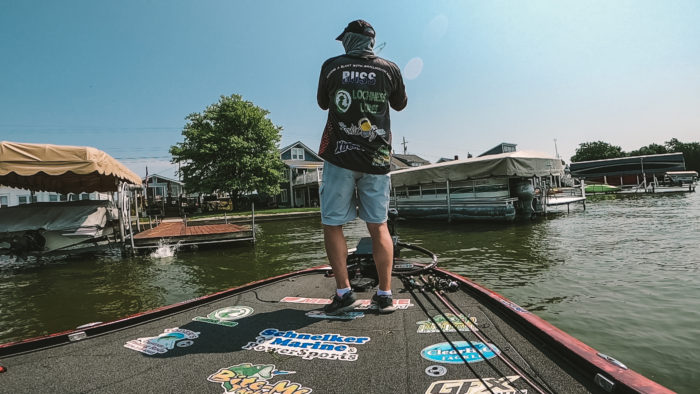
Heavier weighted jigs skip more effectively. A half-ounce is an excellent weight to begin with, but docks with deep water may warrant heavier.
Trailers are a necessity and can improve the attractiveness of the jig. Choosing a trailer with large tentacles will slow down the falling rate. There are times this will increase the number of bites; especially on windy days when other objects are floating around. Other times, a trailer with little action is a better choice.
A general rule of thumb for color selection is dark colors are best in low light conditions, and the shade created by the dock makes dark colors a popular choice. Black/blue and green pumpkin are stables. Choose trailers that match the jig color scheme.
Tackle for skipping Docks
The obstacles of fishing docks are visible to the naked eye: steel poles, wood, ladders, boat lifts, rope, cable, and the list goes on. Therefore, heavy tackle is required.
While spinning rods are sensitive, the accuracy and strength of a baitcasting rod are hard to beat. Immediately upon detecting a bite, it is imperative to get the advantage on the fish – get it coming towards you! A strong hookset with a 7-foot long Medium Heavy action rod will accomplish that.
Match that rod up with a high speed-reel to keep it coming towards you. Use heavy lines, such as a 40-pound braid. Braid line skips better than monofilament and fluorocarbon, plus, it does not break nearly as easily around the aforementioned objects present
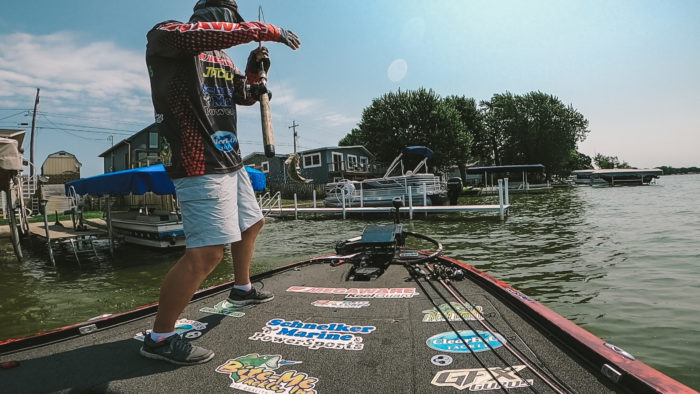
Skipping Jigs Under Docks
This is a technique that requires practice and patience. No matter the skill level, backlashes will happen. Using braided lines will minimize the frustration as it does not tend to tangle as badly as the other lines.
It is also necessary to adjust the settings on the reel. Adjustments might be necessary for different weights, which may also be influenced by the trailer. Practice before getting on the water will minimize the frustration. Few things are more embarrassing or frustrating than untangling a jig from a dock. Master skipping under your boat or vehicle before getting on the water.
The motion of the skip begins by holding the jig in the opposite hand holding the rod. There should be enough slack for the jig to be around the reel. While holding onto the sides of the jig, point the rod down and swing it towards the target. Let go of the jig as soon as the rod begins to bend. Point the rod tip exactly where you want the jig to land.
Keep in mind it is not always necessary to have an expensive boat or electronics to catch big summer largemouth bass. Also remember, maneuvering a boat around the docks will bring your boat around objects and debris. Trim the motor up and install a Megaware SkegGuard to protect your skeg from damage. A KeelGuard will also protect the fiberglass hull from expensive damage.
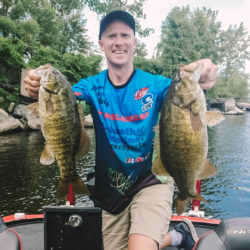
Andrew Buss
Andrew Buss resides with his family in the great state of Indiana. When he’s not fishing, creating YouTube videos or running the Hunter of Fish Bass Circuit, he poses as a school teacher. If you’d like to see more from the #hunteroffish check out his social media channels.
DID YOU ALSO SEE?
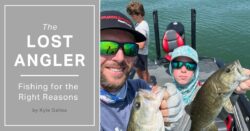
Fishing For The Right Reasons
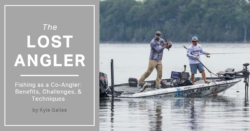
Fishing as a Co-Angler: Benefits, Challenges, and Techniques
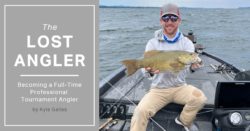

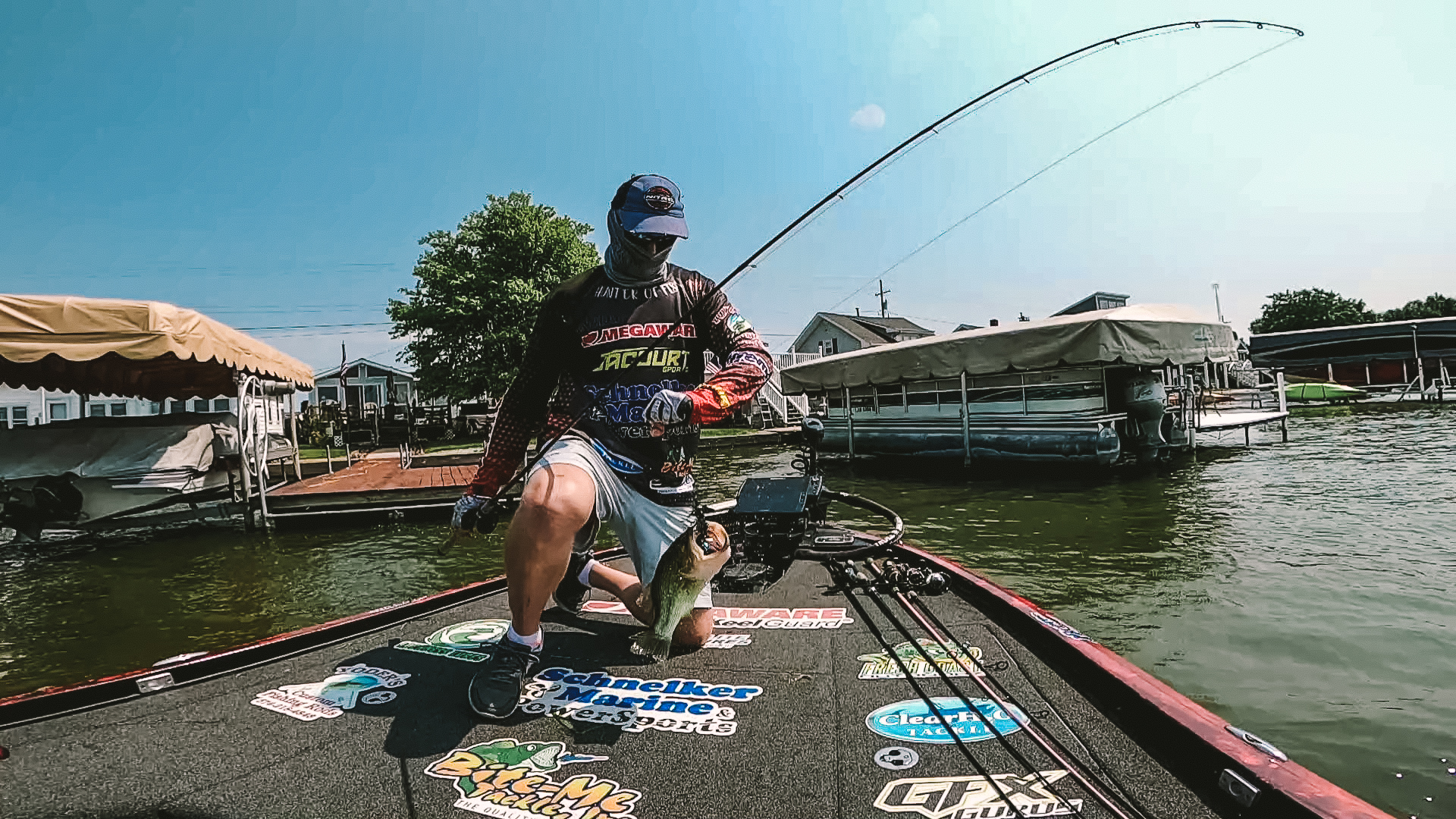
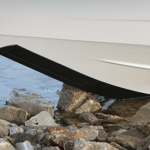
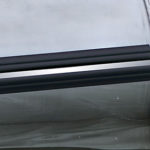
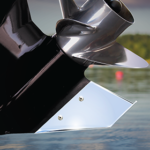
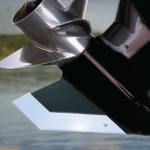
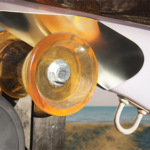
Comments